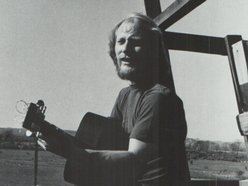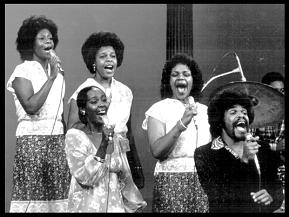This is mark Joseph “young” blog entry #249, on the subject of A 2018 AnimeNEXT Adventure.
Last year in An AnimeNEXT 2017 Experience I reflected on being a guest of the convention–a minor guest, listed as staff, but brought there because as a role playing game designer I hopefully add something to the experience of convention goers. I’m looking at it through a different lens this time, hoping to give something of my own experience.

I suppose the story really starts months ago. Last summer, shortly after my guest appearance at AnimeNEXT, I was hospitalized for emergency surgery and lost quite a bit of time recuperating. Complicating it greatly, two days after I was hospitalized my wife fell and broke a hip and a foot, and was also hospitalized for emergency surgery followed by extended rehabilitation. In what would have been a comedy of errors had it not been so serious, three of our sons were working at cross purposes trying to resolve issues with the house so that we would be able to maneuver in it while convalescing, with wheelchair and walker and such, and when I came home in the middle of this it was in an uproar. I don’t know that I contributed much to it, but after perhaps a week my wife came home, and I was there for a few days helping her get settled before I returned to the hospital for another couple weeks and she was struggling to get along without me with the help of two of those boys and a neighbor friend of theirs. We took a long time to convalesce, and things are still not entirely normal–which meant, among other things, that I had serious doubts about whether I would be able to get to the convention myself, and whether she would be able to manage without me for a few days. She still doesn’t drive, even though she’s back to work, so I have to drive her.
I’m not sure whether it was the last week of April or the first week of May, but one night when I drove my wife to work the most reliable car we have broke down, and that put a dent in our transportation. I had one of my sons pick me up, and used a different car in the morning to retrieve my wife from work, and AAA towed the car to the nearest AAA approved service station, which happened to be a few blocks from home, which was quite convenient since work is fifty miles away. I was beginning to worry that I wasn’t going to make it.
Why should I worry? Well, if you read the aforementioned linked article, you know that I was present in 2014 and 2017, but that in 2015 and 2016 last-minute disasters prevented my attendance. I thought we were potentially facing another, particularly since one of the cars on which we rely belongs to a son who spends the school year driving around the country in a company car and then uses his car, which is legally my car so that he doesn’t have to pay insurance and garage fees during most of the year just to have it, for the summer. So I was anticipating losing a car, on an uncertain date, complicating transportation further.
Then a few weeks prior to the convention I ran out of printer ink. I was in the middle of printing the first draft of the next novel for online publication, and I’m collaborating with someone on this one, so an exchange of printed pages has been part of the process. Printer ink might not be that important, but it is important, and with the car in the shop (for the entire month) and an expected cost estimated with a variable of about two hundred dollars more or less, I had to be careful about spending money. HP makes a reliable all-in-one printer which I’ve been using for near a couple decades now, but they have a policy of underpricing their printers and then overpricing their ink cartridges. Complicating it further, apparently the cartridge mine uses has become less commonly used, so that it wasn’t on the shelf at my local Walmart when I finally decided I needed to buy one. The convention was two weeks away, and I went online and found a place that sold their own replacement cartridges, and ordered some. They arrived about a week before the convention–and two out of two black cartridges were defective, in different ways.
I will credit SwiftInk for great customer service. Their online help gave me suggestions for trying to make them work (cleaning the contacts), and when these failed promised to ship replacements immediately, which they did. Unfortunately, those replacements did not arrive until after the convention began, so I had no print capability.
If somehow you don’t know, I go to conventions to run Multiverser, the roleplaying game I co-authored with E. R. Jones. I take a stack of books; they’re out of print, and I don’t have any copies of the rules other than my own, but I have several of the world books and a couple others. I also have a small (probably twenty-two pocket) file case in which I have a lot of papers, including unpublished worlds that I use, worksheets for magic skills, and on-the-fly character creation papers. As noted, last year when I returned from the convention there was a lot happening, and I wound up hospitalized not too long thereafter, and never gave another thought to those books and papers. At least they got put away–the suitcase that I used was left in the living room until one of my sons decided to move it outside to get it out of the way, and when I found it this year it was ruined. It went through my head a couple times in the hectic days before the convention that I ought to find the books and papers and make sure I had everything, but then part of me was uncertain I was going to go at all, and part of me recognized that if I didn’t have printouts of the needed papers there wasn’t anything I could do about it anyway, not having printer ink.
Complicating it further, as the date approached it became known that my wife, who works alternate weekends, would be working that weekend. At first I thought that was the kibosh, but I realized after mulling on it for a few days that the convention started early Friday, with staff arriving starting Thursday night, and ran through Sunday morning; Sunday was the quiet day, generally. If I could check in on Thursday night I could be active on Friday and up until lunchtime Saturday, get home in time to get organized and have my wife at work Saturday night. I was not able to get confirmation for that from, well, anyone anywhere, but it became my plan, at any rate.
Transportation was settled a couple days in advance. The car that was in the shop was going to be finished that Thursday, and my son whose car it is and I would retrieve it and bring it home. He and his wife were interested in playing at the convention, so they were going to drive me in and back; as it turned out she was feeling ill the day I had to go, but he still did the driving for me (again, thank you). He dropped me at Bally’s, where I was billeted, and I told him to stay in Atlantic City until he heard from me in case something went wrong.
Something did go wrong, but first I stood on line for probably half an hour. I was very irked when a young and not unattractive girl took advantage of the attentions of a young man to cut in line right in front of me, but stifled my passive-aggressive tendencies and waited until it was my turn. Then they asked for my ID. I had not driven myself to Atlantic City, and I did not have a current copy of my license on my person. With all the hospital visits and doctor offices wanting my ID, it got separated from my wallet and I wasn’t carrying it. I had two older licenses, but the hotel would not accept these despite the fact that they were photo IDs, because they had expired. They were not unsympathetic, and attempted to call the person running housing for the convention, Connie Ngo, but Connie didn’t answer her phone. I was stuck. I couldn’t keep my driver in the city all night, but I couldn’t send him away without knowing I had a room. I texted him to return to get me, and started toward the exit; but I remembered that I had Connie on Messenger (because I had wanted to confirm that there would be no problem with checking in on Thursday night), so I messaged her. She responded to the message and called the desk clerk, and I was approved and given a room key.
We were four to a room, technically, but only one of my roommates had arrived, and one had had to cancel at the last minute, and the remaining one I did not see until Friday night. My roommate introduced himself by first name only, and I admit that it takes me several tries to learn names, and I only saw him awake one other time when I was barely so myself. He offered a variety of snacks he brought from home. I stuck one of the two key cards they had given me in a pocket and tossed the folder containing the other on the dresser, and never saw it again, but I slept with the card in my pajama pocket and kept track of it all day (I have this freaky thing about losing keys). I laid claim to one of the beds and slept until morning.
At this point I’ll say a few words about the hotel. I was in the Sheraton last year. The room at Bally’s was considerably nicer. I think the room itself was larger, and it had a couch large enough for a bed in addition to the two beds (and the first roommate had brought his own cot) so we didn’t have to share. The bathroom is larger, with a large shower stall. I had some concern that there were no safety railings inside the shower (I’m getting old, and am not always completely steady on my feet), but that’s often the case. The Sheraton, as I recall, had a shower/tub, but I’m a bit tall for most bathtubs and so prefer showers. It was overall a nice room. I do not know, however, whether that’s because all the Bally’s rooms are nicer than the Sheraton rooms. I was in the Garden Tower, and it may be that those are better than the standard rooms.
One thing that bothers me, though, is that if you wanted WiFi you had to pay for it separately. McDonalds and Walmart can manage to give their customers free WiFi. I’m not sure why one of the biggest casino hotels in one of the major resort centers in the Western Hemisphere can’t manage such a trivial amenity–but indeed I was reminded that the same rule held at the Sheraton last year. I’d have used it to watch Netflix on my Kindle, I expect, but I had had the foresight to download a couple things to the Kindle for that purpose in advance, and I could handle Messenger, which I also have on the Kindle, on my phone.
I awoke alone, and had not yet checked in with the convention staff, but I took time for prayer and study and got a shower and a respiratory treatment before packing the essentials and walking the several blocks to the Convention Center. That is one advantage of staying at the Sheraton: it is physically attached to the Convention Center, being right across the street and having an enclosed pedestrian bridge between the second floors of each. That doesn’t mean it’s close–it’s a long walk inside the Sheraton just to get from the rooms to the bridge (there are banquet halls between the two), and I remember lugging my gear using a wheeled cooler as a handtruck and case between the buildings. I knew that there were free buses between Bally’s and the convention, but that you had to have your convention ID to use them, so the first time I had to walk. Had I been earlier the night before I could have checked in there, but I was slow packing everything (the suitcase having been ruined, it took a while to settle on a high-quality reusable grocery bag for my clothes) and thought getting into the hotel was more important. I made the walk to the center and found my way to operations, which was in the same room as last year, and was soon properly badged. I then found Kat, my boss as head of Tabletop Gaming. She was telling one of the photographers to get some pictures of how overcrowded the board game room already was on Friday morning, to show that our department could make good use of more space. I told her I was going to take the Jtney (the bus) back to Bally’s and return with my thirty pound box of books, dice, and game materials, then grab some brunch somewhere.
Time to address the food. That was an issue last year. It was considerably better this year. Instead of providing scheduled meals they gave us eight vouchers, each good for up to fifteen dollars at any of the several food outlets in the Convention Center itself except the Beer Garden. Breakfast was still a challenge, as reportedly only one of those outlets opened early, and it sold out of breakfast sandwiches quite quickly both days I was there. I was late enough on Friday that they already had their lunch menu going, and I bought a personal pizza, a cup of coffee, and a single-serve Minute Maid Tropical Blend juice, which was fourteen dollars and change–but hey, they must pay exorbitant rent to have space inside the convention center. When I got back to the table, though, I already had players waiting, and so I sipped my coffee while running a game for a couple hours, and then when they scattered to other convention attractions I ate a cold pizza with a bottle of juice, and can’t really speak to the quality of the pizza. The next morning I was earlier; they had gluten free bagels, which I decided not to eat (and was told my someone that this was a good decision), but instead got two cinnamon danishes, a small Jimmy Dean bacon, egg, and cheese biscuit, coffee and juice.
By Friday afternoon I had heard that there was a place to buy food inside the dealer room, so I decided to try that next. They were a pirate-themed grill, and advertised steak sandwiches and burgers. I asked for one of their ten dollar bacon sirloin cheeseburgers, and was told that they were out of bacon, so I went with the eight dollar version without bacon, added lettuce, onion, mayonnaise, and catsup, with a bottle of Minute Maid Orange juice and a cup of hot chocolate, self-served. It was rumored that their fries were good, but at five dollars I could see I wouldn’t be able to buy a drink and stay within the voucher. Anyway, the burger was large, tasty, and filling, and I went back the next day. At that point I was preparing to leave the convention, my ride being almost there, and so I spent two vouchers to get two bacon cheeseburgers and one without bacon. I gave one of the bacon burgers to the son who drove to get me (and he devoured it in the street before we drove away, but said it was really very good, but economical as he is he would not have paid ten dollars for it; I figure that’s a good price for deluxe burgers nowadays, and again they have an incredibly high rent on their space). I brought the other two home and shared them with my wife, who is not a fan of bacon. The grill bent over backwards to make it possible for me to transport these, which were usually served in open topped boxes, and should be commended for that. I left my remaining coupons with Ahmetia, my co-host in the RPG room, figuring she could use them. Because of the high prices, I often saw people using a fifteen dollar voucher plus a bit of pocket cash to pay for their meals, and while I avoided that I did so partly by not buying some things I might otherwise have eaten. That’s not a complaint; I tend to overeat anyway, and didn’t really need the fries.
By now I have this entirely out of sequence, but that’s not really a problem. I’ve left out the games, only hinting at them to this point. Time to remedy that.
By the time I got to the table with my pizza late Friday morning, Navya and Cory were waiting, and I began the character creation process. Ahmetia, who has several years of Multiverser play under her belt, is very good at selling people on playing at my table, and Kat reminded me that she played a session at Ubercon a decade ago and thinks it’s a really great game, so I get referrals. As we were moving forward with their character papers, Johanna arrived and joined us.
You’ll remember I said that the printer mattered. My On-the-Fly Character Creation system uses four printed sheets on which players record information. The fourth sheet is the simplest, being there strictly for the world list and stage number. The third is equipment and the second skills, and of course you can have multiple sheets of skills and equipment. The first, though, is the most complicated, with name, aliases, attributes, averaged attributes, best relevant attributes, bias levels, weaknesses, and character description all mapped onto a single page–and when I opened my file, I had only the second and third pages printed.
It wasn’t a disaster. After all, I know what goes on the first page, and I had a couple of yellow pads, so everyone wrote out the first page longhand. There was a second problem, that I had only one pen, and my first two players had no writing implements; I discovered another, though, an old four-color pen, in the game materials box, and when the third player arrived she had her own. Not long after that, Ahmetia delivered a handful of pencils and some scrap paper, which was a big help as the weekend continued. We put together their character papers, started them on the Tropical Island, and got them all gathered together with Michael di Vars, who explained to them what was happening.
I had eight players over the weekend, seven of whom sat and listened to Michael explain that they had died and any time in the future that they die they’ll come back to life in another universe just like this time, and not one of them balked, called him crazy, or demanded proof of this insane explanation. Ah, well, it’s fun when it happens, but I’m not going to spoil it. I was working out where each of the original trio was going to go next when they died, but suddenly they all had to run before that occurred, the game ended, and I ate my cold pizza and ran to the loo.
I returned to find Corderro waiting. We got him up and running on the Tropical Island, and he had a long conversation with di Vars and then asked if the senior verser would be willing to spar a bit in unarmed combat. As it happens, di Vars is extremely good at many weapons across the technological spectrum, but never really took much interest in unarmed hand-to-hand. Corderro was high level professional, third degree black belt in a martial arts style. At hand-to-hand he was fifty percent faster than di Vars with a very slight edge on accuracy, with the result that he outfought the killing machine in two one-minute rounds. He lasted long enough for the volcano to blow, took a nasty rock to the head, and was out of the world–but also decided to leave the game there. That’s a bit of a shame, because I knew where I was going to send him. (Hint: he has a beard.)
I’ll interrupt this recounting of games to recount the night. I was the first one back to the room, partly because after seven I figured there was no point in starting a new game, I got and ate the aforementioned cheeseburger, and called it a night. I moved my box of books to the board game room, which gets locked overnight, and took my bag of personal effects to the Jitney to ride back to the hotel. I wasn’t up long, taking time to find something innocuous on the television that would lull me to sleep (Transformers, which I’ve seen before), set early alarms, and went to bed.
An hour later I was awakened by banging on the door. It took a moment to get organized and answer it, and I almost didn’t catch the departing offender, but it was the roommate I’d met accompanied by the roommate I hadn’t met, having gotten themselves locked out. I let them in and went back to bed, only to have my cell phone ring while I was getting in. My youngest son, who lives not far from Atlantic City at the moment, had apparently not realized that I was going to be at the convention this weekend, and having failed to get his mother on her phone decided to try mine. We talked for several minutes, and apart from me suggesting that if he couldn’t reach his mother he should try his brother I don’t remember any of it. I then settled down to sleep.
Someone silenced the television at some point, but I was asleep by then. I noticed it in one of my brief periods of overnight awareness. I think I awoke before my alarm; in any case, I was the first up, and I packed my things, left the room, went back because I realized I’d forgotten my bottle of Barq’s Root Beer and discovered that I’d also forgotten my box of tissues, and then went downstairs and checked out of the hotel. It was not quite seven thirty, and the buses didn’t run until eight, so I got some prayer and study time on a park bench near the hotel parking garage entrance under the shelter of the building as it poured rain a few dozen feet away. At eight I walked the short couple blocks to the bus stop, boarded a waiting Jitney, and was soon joined by a crowd of others headed to the convention. I had promised Kat I would text her when I was up, which I did around seven-thirty but with the caveat that I wasn’t going to get there until the buses started, and she said she was already awake and working on getting the room unlocked.
I put my stuff in the RPG room, but the board game room was still locked; I asked someone working that room to bring my box to me when it became possible, and went to obtain the aforementioned breakfast. Returning, I did a bit more study while nibbling on part of the breakfast, but then Steven arrived. I still didn’t have my materials, but there were pencils and pieces of scrap paper on the table, so I set aside my breakfast and attended to starting his character sheet. The books came, I got him started on the island, and Hannah and Tia arrived. I had actually bumped into them twice in the halls, and Hannah must look like someone I know because I thought I recognized her, but apparently she’s not who I remembered. Having met me and introduced themselves, they came to try the game, so I started setting up their papers. Having finished their first page, I turned to their skills, still juggling Steven through his time on the island, and Austin arrived and joined the character creation process. I was hitting my stride, though, and got that moving well. Steven met di Vars, and got a feel for what was happening, but then said he had to leave just about the time I was launching Tia, then Hannah, then Austin.
Austin made a comment about having to leave soon, so I ignored the die roll and had him reach di Vars first. He decided on cautious discretion, and remained behind the tree line watching. Tia, second to arrive, decided that she needed help more than caution, and called out, receiving an invitation to join him. By the time Hannah arrived, she could see Tia sitting by the campfire, and as they were friends before the verse they recognized each other. Austin left the table, and di Vars explained things to Tia and Hannah, and then before we got much further they, too, said they had to leave.
I feel a bit foolish that I did not mention it to Navya, Cory, and Johanna, but perhaps they’ll find their way here somehow. Corderro jogged my thinking, so I invited him, Steven, Austin, Hannah, and Tia to continue play on the M. J. Young Net Forum. I know several of them wrote that down, but as I write this none of them have arrived. That’s kind of a shame, because I know where I want to send several of them, but we’ll give them some time to find their way.
I’ve got one other aside. Last year, within minutes of my arrival, I saw a girl in costume who would have made a good picture for my character papers for Lauren Hastings. She looks a lot like most representations of Tomb Raider’s Lara Croft, so I often find pictures that work. This year I saw someone, not quite as good but passable, again as I was headed for check-in. Again I never saw her again. It prompted my brain, though, to consider that I should look for people who might be suitable images for those character papers. After all, Slade looks a lot like Thor, I’ve got a couple of American soldiers, someone might come as a sprite which would be good for Derek, Shella is a witch, and I’ve recently added a few characters including a dark-haired Arabian princess. I saw no one the entire time who fit any of these images. It was a bit disappointing in that regard, but then I’m not all that well versed in anime and recognized very few of the characters I did see. Someone was Deadpool. That’s about it.
When I got home, the household was hoping that since I had left the convention already I could run a game for them. I somewhat wearily with apologies explained that the reason I was home was because I had to get some sleep and do the work driving that night, and then tackled what had to be done to be ready for that.
I must also thank Kate and Tris for holding down the kitchen in my absence.
Here’s hoping that I can do another convention next year, if not sooner. I don’t know that I would say I have fun, but it is a high point in my time to be reminded that people like the game, even if it didn’t sell terribly well.
I think that about covers it all. Thanks for reading, and thanks again to the convention for inviting me again. Here’s hoping that I was not more trouble than I’m worth, and perhaps there will be another invitation next year. It’s an interesting way to spend my birthday weekend.











